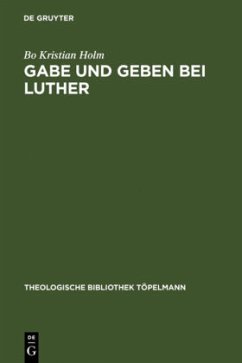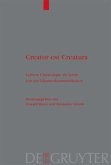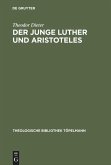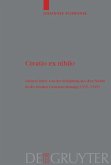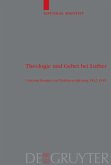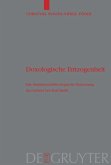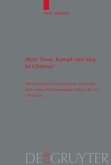The author uses the cultural anthropological understanding of an â??economy of the giftâ?? (reciprocity) to show how in Martin Lutherâ??s writings, especially between 1518 and 1522, his doctrine of justification cannot be formulated without the idea of a re-established mutuality between God and man. Lutherâ??s newly-gained understanding of mutuality enables him to develop his positive understanding of the Christian person and for the frequent parallels he draws between Christology and anthropology.
Mit Hilfe des kulturanthropologischen Verständnisses von einer 'Ökonomie der Gabe' (Reziprozität) wird anhand von Texten Martin Luthers - vor allem aus den Jahren zwischen 1518 und 1522 - gezeigt, wie dessen Rechtfertigungslehre ohne einen Gedanken der wieder etablierten Gegenseitigkeit zwischen Gott und Mensch gar nicht formulierbar ist. Luthers neu gewonnenes Verständnis von Gegenseitigkeit ist die Voraussetzung für sein positives Verständnis vom Christenmenschen und für seine häufige Parallelisierung von Christologie und Anthropologie.
Mit Hilfe des kulturanthropologischen Verständnisses von einer 'Ökonomie der Gabe' (Reziprozität) wird anhand von Texten Martin Luthers - vor allem aus den Jahren zwischen 1518 und 1522 - gezeigt, wie dessen Rechtfertigungslehre ohne einen Gedanken der wieder etablierten Gegenseitigkeit zwischen Gott und Mensch gar nicht formulierbar ist. Luthers neu gewonnenes Verständnis von Gegenseitigkeit ist die Voraussetzung für sein positives Verständnis vom Christenmenschen und für seine häufige Parallelisierung von Christologie und Anthropologie.

